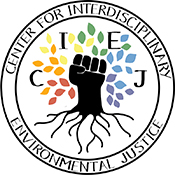Visit our sister
GSA/UK organization:

Designed by V.M.S.
© 2004-2022
All Rights Reserved
|
Earth Crisis and the Global Environmental Movement Virtual Conference
August 9 - 13, 2022
KEYNOTE SPEAKER ABSTRACTS
|
 Patrick Bond
Keynote info >> |
TITLE: TBA
ABSTRACT: Coming Soon |
|
 CIEJ
Keynote info >> |
TITLE: TBA
ABSTRACT: Coming Soon |
|
 Ying Chen
Keynote info >> |
TITLE: Confronting the North-Centric Western Climate Consensus
ABSTRACT: The capacity of the wealthy countries in the Global North to steer the mainstream discourse into one that benefits and privileges themselves at the expense of the Global South suggests that, in addition to ecological imperialism in the pure economic sense, analysis should also be applied to the uneven power relations in the political and ideological arena that serve to reproduce the overarching ecological imperialism. In this talk, I will discuss how researchers and global institutions in the Global North frame the narratives of climate change culpability through selective presentation of emission statistics that tends to minimize the accountability of the North while inflating that of the developing and emerging economies in the South. Such narratives also contain the Malthusian perception that economic development and population growth in the Global South, among all, should be taken as a major threat to climate change solutions. This type of reasoning again serves to justify and maintain the current hierarchical global system and reinforce ecological imperialism. |
|
 Tobita Chow
Keynote info >> |
TITLE: Great Power Conflict and Climate Change
ABSTRACT: Overcoming the global challenge of climate change requires greater international cooperation and structural changes to the global system. At the same time, the world is at risk of falling into a period of great power conflict between the US and China. In this talk I will discuss how great power conflict threatens climate politics, and the prospects for building an alternative of climate internationalism. I will also address the most common objection to this line of argument: that it means sacrificing concerns over human rights in China. |
|
 Eve Darian-Smith
Keynote info >> |
TITLE: Rising Antidemocracy and the Climate Crisis
ABSTRACT: This talk explores the connections between a global rise of antidemocratic politics and the escalation of climate change, manifested through catastrophic wildfires. As political leaders and big businesses work together in the pursuit of profits and power, anti-environmental policies (including science denial) have become essential political tools enabling the rise of extreme right governments. Exploring this process through fires in Australia, Brazil and California, I argue that wildfires facilitated by far-right leaders in recent years connects the political erosion of liberal democracy with the corrosion of the environment, in turn threatening the collective future of humanity. |
|
 Environmental Justice Fellows
Keynote info >> |
TITLE: Ripe for Creative Disruption: Frontline Environmental Justice Leaders Design Solutions, Beyond the Crisis
ABSTRACT: False solutions are a result of neoliberal strategies that center carbon and are based on a 'design for' methodology that has failed the people and the planet time and again and is ripe for disruption. How does Environmental Justice (EJ) disrupt design to build power and scale solutions by those most impacted and impactful? Ripe for Creative Disruption has a total of 20 EJ leaders working beyond their organizations, and imaginary borders to critically examine decolonized methodologies, EJ lived-experiences, and a set of 'EJ Design Mindsets' that get communities to innovate through crisis and beyond. Together these leaders practice co-design methodologies that are ripe for power and scale in the era of Environmental Justice. Read more >>
|
|
 James Fenelon
Keynote info >> |
TITLE: Racial Capitalism and the Anthropocene
ABSTRACT: Indigenous Peoples have resisted colonial invasion and domination for some 500 years, about the same time that European invasions and colonization created the modern world-system and capitalism which maximized extractive and plantation economies that destroyed regional and continental ecospheres, employed fossil fuel systems to build industrial capitalism exploding environmental climate change, stratifying inequalities and racial/ethnic injustices, and induced the Anthropocene. Resistance and Revitalization movements of Indigenous Peoples have linked with environmental organizations to offer alternatives to the globalization strategies of transnational corporations and capitalist countries, which include ways and means to maintain healthy social / environmental societies within broader worlds. We have identified Indigenous models of social development that interacting with the earth and the world, provide non-capitalist modes of living, which can combat the ongoing decimation of human, animal, plant and mineral ecological systems. After identifying the global capitalist models taking over earth, we present the Lakota Oyate and other Indigenous societies as model alternatives to social constructions needed for survivance in these times of threat convergence. Our futures on planet earth depend on collective movement and cooperative philosophy inspired by Indigenous Nations. |
|
 Carmen Gonzalez
Keynote info >> |
TITLE: Racial Capitalism and the Anthropocene
ABSTRACT: In recent years, interest in racial capitalism has exploded in several disciplines, including history, political theory, political ecology, and cultural studies. The concept of racial capitalism has been embraced by scholars and activists as a means of exploring the common roots of seemingly unrelated contemporary phenomena. These include extreme economic inequality; the resurgence of right-wing authoritarian ethno-nationalism; increasingly militarized and racialized policing and border control; the ongoing dispossession of Indigenous peoples and others racialized as inferior; the expulsion to the margins of society of growing numbers of humans, including persons who are unemployed, incarcerated, or homeless; and the unprecedented degradation of the ecological systems that support human and non-human life. This presentation will introduce the concept of racial capitalism and discuss its relevance to the intersecting socio-ecological crises of the Anthropocene. |
|
 Indigenous Climate Action
Keynote info >> |
TITLE: The Intersections of Indigenous Rights and Climate Justice
ABSTRACT: Indigenous experts will explore the intersections of Indigneous rights and climate justice. At Indigenous Climate Action we center Indigenous knowledge, rights and culture to reinforce the vital role of Indigenous peoples in leading and driving climate justice movements. Climate justice requires systemic and transformative shifts that go beyond reducing global emissions by addressing root causes - colonialism, capitalism, white supremacy, patriarchy and extractivism. Through uplifting Indigenous peoples rights and cultures as a critical pathway to climate justice we can counter hegemonic politics moving towards decolonization that ultimately protects biodiversity, bolsters land, food and energy security and sovereignty lending to collective liberation. |
|
 K. Melchor Quick Hall
Keynote info >> |
TITLE: A Transnational Black Feminist Approach to Food Sovereignty
ABSTRACT: Engaging a Black feminist scholar-activist praxis, Hall applies a transnational Black feminist (TBF) framework (Hall 2020) to a mapping of gendered ecologies (Hall and Kirk 2021) that connects Honduras and Tanzania in a food sovereignty project. The Transnational Black Women’s Food Sovereignty Project that brings together the struggles of two women’s groups—one in each country—is funded by the Institute of International Education through a Centennial Fellowship. Discussing the TBF principles of intersectionality, scholar-activism, solidarity, attention to borders/boundaries, and radically transparent positionality, Hall explores the challenging work of an anti-capitalist land steward engaging the politics of property, food, water, gendered violence, and taxes. |
|
 Leonardo Helland
Keynote info >> |
TITLE: TBA
ABSTRACT: Coming Soon |
|
 Deborah McGregor
Keynote info >> |
TITLE: TBA
ABSTRACT: Coming Soon |
|
 Jason W. Moore
Keynote info >> |
TITLE: Value, Nature & The Vortex Of Accumulation
ABSTRACT: Of all the domains of Marxian political economy, nature is by far the most vexing. Is nature an economic input as in the notion of natural resources; is it the object of labor in the process of production; or is something broader, as in the idea of land and the territory upon which capitalism develops? Such questions rest on a conception of extra-human nature, but some have argued that because people are part of nature, then resources, labor and conditions of production include the social integument of built environments, levels of education, and the work of families.
But does this go far enough? Perhaps capitalism should be thought of as a "life process" that unfolds within the web of life? This essay grows out of this long conversation around the relations of nature and capital, and it takes shape out of our conviction that political economy has too often taken a back seat to larger musings in which philosophy has been foregrounded and economic theory treated as derivative rather than requiring addition argumentation. This tendency has at times discouraged a clear analytical reckoning with the fundamentals of Marxian theory such as capital accumulation, the labor process, commodity circulation and the theory of value. Our purpose here is to elaborate a model of capital-in-nature outlined in Capitalism in the Web of Life, but which remains preliminary. |
|
 Bhumika Muchhala
Keynote info >> |
TITLE: TBA
ABSTRACT: Coming Soon |
|
 Abigail Perez Aguilera
Keynote info >> |
TITLE: Cuerpo-Territorio and Multispecies Cosmopolitics
ABSTRACT: As discussed by Nelson (2020) "nonhuman nature offers more intelligent and resilient models" for change and survival. However, as part of the embodiments from the colonial continuum, our -human- notions of cooperation and survival are mediated through a capitalist, colonial, patriarchal and anthropocentric lens. Hence, the colonial continuum understood as the ongoing process of colonization transgressing time and spaces, is inserted within institutions, bodies, and imaginations. Therefore, the complex interactions between species are limited by our humanity, presenting our (radical) ideals as possible solutions being our human interactions, the ones limiting other non-human species. Is it possible to build affective relations with non-humans? Should we renounce and neglect our own constitution as humans and "learn from others"? Then, what would a multi-species affect theory look like? And most importantly, what are the embodiments (or lack thereof) derived from this type of non-Anthropocentric affectivity? Is it possible to create a multi-species resistance based on a critical approach to affect theory, based on the Global South feminist conceptualization of cuerpo-territorio as well as a affective multi-specues approach that does not focus (and even rejects) discussions on (climate) grief or anxiety but focus on a deeper and critical reflection on how multi-species resistances are based on a non-Anthropocentric affectivity, including one that that moves beyond a Eurocentric idea(l) of (human) corporeal politics? |
|
 Leslie Sklair
Keynote info >> |
TITLE: Beleaguered City, Beleagured Planet
ABSTRACT: This talk sets out to analyze the connections between three different but related phenomena (capitalist globalization, the Anthropocene, and the Coronavirus epidemic) through the lens of iconic buildings and spaces and the cities in which they are mostly found. What all icons have in common is that they thrive by attracting visitors. My argument is that all iconic architecture is an increasingly influential part of neoliberal capitalist city planning, via global tourism, local and national place-branding, and "best city" rankings. I argue that the transnational capitalist class uses cities as competitors in a global system of lucrative investment opportunities.
Capitalist globalization is widely implicated in the Anthropocene (signifying human impacts on the Earth system, usually destructive) and together they facilitate the spread of the Coronavirus epidemic. The concept of "administrative evil" is mobilized to highlight the ethical dimensions of city planning and neoliberalism, and the increasingly "beleaguered city". |
|
 Gladys Tzul Tzul
Keynote info >> |
TITLE: TBA
ABSTRACT: Coming Soon |
|
 Victor Wallis
Keynote info >> |
TITLE: Climate, COVID, Class, and Capital
ABSTRACT: The environmental crisis reflects capitalism’s agenda of dominating Nature. The associated practices affect human health directly, as biodiversity loss destroys both soil and marine life, leading, along with industrial food production, to impoverishment of the human diet, which is among the factors undermining resistance to COVID-19 infection. The official US response to COVID, emphasizing vaccination and suppressing non-patented remedies, shows a parallel proclivity to dismiss natural processes and instead promote marketable products. Mainstream censorship has created an undeserved platform for right-wing forces which, while justly criticizing vaccine mandates, denounce universal healthcare yet advocate for state interference in women’s reproductive decisions. |
|
|




















